Originaire d’Italie, du côté de Venise, Marco Shuttle a fait partie de la scène club dès les années 90, une époque où il distribue des flyers et travaille en tant que promoteur pour des soirées organisées à Jesolo, sa ville natale. Il part en 2002 vivre à Londres pour continuer ses études de designer, et par le hasard des rencontres rejoint le crew Süd Electronic de Lakuti et Portable qui organise des soirées devenues depuis légendaires. Il vit ensuite à Stockholm, et c’est d’ailleurs pour le label Suédois Färden qu’il livre son célèbre hit The Vox Attitude en 2011. Après une année 2014 faste, où il a sorti chez Time To Express un maxi, et surtout son premier album Visione ; il vient tout juste de livrer un nouvel EP qui revisite Sing Like A Bird sur son label Eerie, et s’apprête à repartir cette fois pour emménager à Amsterdam. Rencontre.
Tu pars vivre à Amsterdam ? C’est un changement d’air nécessaire ?
Non, c’est plus une décision en relation avec la musique. Londres est en train de devenir de plus en plus chère, et il devient impossible d’y rester pour les artistes. J’adore Londres, mais elle traverse une période difficile pour les clubs et la vie nocturne.
Tu as pu vivre dans un certain nombre de villes, Berlin, Stockholm, Londres… Est-ce difficile pour toi de trouver un « chez-toi » ?
(Rires) Je pense que j’ai un peu abandonné cette idée. J’ai accepté le fait que je vais probablement errer pour le reste de ma vie, même si parfois la stabilité me manque, le « nid ». D’une certaine façon j’ai toujours la curiosité et l’envie d’appartenir à autre chose.
Déménager est un peu comme un nouveau départ.
Exactement, on repart de zéro. C’est très stimulant, un challenge sous de nombreux aspects que ce soit socialement, visuellement. Nous sommes une génération qui a un accès facile au voyage et qui déménage beaucoup. C’est un peu un choix de vie, une façon d’être.
Comment est-ce que cela affecte ta créativité ?
Je pense que ma progression et mon évolution n’ont pas été déterminées par le lieu où je me trouvais. Lorsque je suis arrivé à Londres au début des années 2000, j’ai vraiment vécu un moment crucial, j’ai rencontré des gens qui m’ont vraiment marqué et que je n’aurais pas pu rencontrer dans ma ville natale. Je ne sais pas si cela a vraiment affecté ma manière de composer, mais plutôt la façon dont j’ai embrassé cette carrière. Je pense que de nos jours là l’endroit où l’on vit est moins pertinent, les connexions sont différentes. Pour moi c’est davantage les gens que je rencontre plutôt que les endroits où je vis qui comptent, même si déménager autant change votre attitude et pas juste musicalement.
Tu viens de sortir Sing Like A Bird (Reprise), et il y a cette vidéo réalisée pour le titre Back Here. Tu peux me parler un peu de cette expérience ?
C’est l’idée de Lucasz, un ami qui travaille dans la production de films. Je cours beaucoup et il a décidé de me filmer avec un drone pendant une de mes courses. Je lui ai fait confiance, c’est quelqu’un de très talentueux et professionnel. Je suis vraiment heureux de l’avoir fait, au-delà du point de vue artistique, c’est aussi un très beau souvenir. Back Here est un morceau que j’ai créé lorsque je suis arrivé à Londres il y a quelques années, et bizarrement il sort alors que je m’apprête à en repartir. C’est un bout de ma vie quotidienne filmé, quelque chose qui va me manquer. Cette vidéo a pour moi un aspect très subliminal, beaucoup de sens caché.
Tu parles souvent de la grande importance pour toi d’évoquer des images, d’être dans un sens cinématique.
Je pense que mon bagage dans les arts visuels me donne une approche un peu différente. La musique est une question de goût, d’esthétique. L’esthétique de ma musique, ce point de vue, se lie très bien avec cette antériorité. Je pense avoir été éduqué très tôt dans ma vie à avoir une certitude sur ce que je trouve beau ou pas, et cela s’applique aussi radicalement aux sons.
J’ai l’impression que ces dernières années tu as expérimenté et de plus en plus exploré de nouvelles régions. Es-tu un peu lassé du cadre de la techno ?
Du « 4 by 4 » ? Pas lassé, mais j’ai envie d’explorer des tempos différents, d’autres approches. Je viens du club, ce sont mes racines et je suis tombé amoureux de cette musique en sortant. J’aime la techno, mais en même temps j’ai envie de travailler sur du downtempo, et les limites sont tombées ces dernières années. J’explore de plus en plus de nouveaux terrains, lorsque j’atteins un certain état et que j’ai travaillé sur plusieurs morceaux abstraits, j’ai envie de faire quelque-chose pour le dancefloor. J’aime alterner les deux, et les deux ont quelque chose à gagner de cette expérience. Je ne perçois pas mon travail comme divisé en deux parties, tout s’intègre plutôt bien.
Pas besoin d’un autre alias pour un nouveau projet.
Oui je pense que tout rentre bien sous un nom. Cela semble cohérent, je me moque un peu des étiquettes et je ne pense pas non plus que mes morceaux dancefloors sont juste fonctionnels.
Lorsqu’il s’agit du DJing, est-ce la même chose ou as-tu une approche différente ?
Cela dépend vraiment, le DJing est très situationnel. Je pense que je suis considéré d’une certaine façon comme un DJ assez expérimental. Je joue deep et hypnotique, mais je ne pense pas être monolithique, si j’ai du temps – et plus j’en ai, mieux c’est – ma gamme va partir de la techno Detroit pour arriver à quelque chose de très deep dans le style de Dozzy, mais aussi du Aphex Twin, du Jeff Mills ; la musique que j’ai tendance à proposer possède de nombreuses saveurs. Je maintiens une musique profonde, assez « dystopique » et introspective, mais j’aime aussi effectuer un tour à 360° dans un voyage qui reste cohérent.
Surprendre en fait ?
Il m’est arrivé de vider des dancefloors, mais je pense que maintenant les gens savent un peu plus à quoi s’attendre. Cela dépend du contexte, parfois on sent une certaine énergie et on a la confiance pour tenter des trucs. C’est un peu une situation où l’on donne pour recevoir, si on arrive à bien construire et que la foule vous suit, on peut alors penser : « Je vous tiens et maintenant on va faire ça. » C’est un peu une mission, et je pense que nous vivons à une époque géniale pour la musique électronique, aujourd’hui c’est une plateforme très ouverte et il y a vraiment énormément de possibilités d’être créatif avec cette musique.
À ton avis, tu te positionnes où ? Est-ce que tu dirais que tu fais partie de la vague techno italienne ou plutôt en dehors ?
Pour être honnête je m’en moque un peu et ce n’est pas vraiment à moi de décider comment les gens perçoivent ma musique. Tu en penses quoi par exemple ? (rires)
Je pense qu’il y a quelque chose qui connecte certains producteurs italiens à une musique deep et hypnotique, peut-être en rapport au label Elettronica Romana. Mais je ne pense pas que tu peux être étiqueté là-dessous.
Peut-être que certains me mettent dans cette catégorie à cause de ma collaboration avec Donato Dozzy, mais je n’ai jamais fait partie d’un groupe lié à un emplacement géographique. Je n’ai pas fait partie de la scène à Rome et je n’ai rencontré Donato qu’il y a deux ans. Je ne trouve pas ma musique sombre comme il est parfois décrit, mais c’est intéressant de voir que ma perception est différente de la perception des autres. J’essaie juste de toujours faire les choses d’une manière nouvelle. Parfois je commence des morceaux à 30bpm, j’essaie de me surprendre dans des tempos non-conventionnels. J’aime laisser les choses ouvertes.
Tu n’as pas une formule fixe. As-tu beaucoup changé ta manière de composer après Visione ?
Oui car Visione a été mon premier pas dans une approche non liée au dancefloor. Je trouve inutile de faire un album avec six morceaux techno et du drone pour remplir les trous. Même si c’est très bon, ce ne sont pas des albums que j’aime écouter dans mon canapé. Avec un album il faut un équilibre qui n’est pas nécessaire avec un maxi. On a moins de limites et c’est une approche plus totale.
Tu as une approche très conceptuelle.
Je ne me force pas vraiment pour y arriver, cela vient naturellement. J’ai rarement un point de départ lorsque je commence un morceau. Je sculpte les sons avec mes machines et je tente de moduler dans un flot afin de construire une narration. C’est un peu comme partir en voyage et aller à l’aéroport pour acheter un billet sans savoir la destination.
Marco Shuttle had a strong 2014 year releasing on Peter Van Hoesen’s Time To Express and his debut LP Visione with his own Eerie label. This year the Italian producer just released Sing Like A Bird (Reprise) a revisitation of the original which showcases cuts of finely crafted psychedelic techno with subtle soundscapes and hypnotic grooves.
So you are you moving to Amsterdam? Is it for a new job, a necessary change of air?
No it’s more a music related decision. London is becoming more and more expensive and it’s becoming impossible to stay here if you are an artist. I love London, it will always be in my heart, but it is getting more and more a money driven city. Everyone involved in the underground scene is having a hard time here and it is a difficult time for nightlife and club culture.
You have been living in quite a few places in the past years. Is it hard for you to find a place you call home?
(laughs) I think I kind of gave up with this idea, I accepted the fact that I will be wandering for the rest of my live altho I do miss a kind of nest, a feeling of stability. I think I get constantly curious about belonging to somewhere else somehow.
Moving is like a fresh start in a way.
Exactly, you start from scratch again. It is very stimulating, a challenge in many aspects. I think our whole generation, since traveling became so easy, is used to moves a lot. We live in different cities in Europe. In a way it is a bit of a choice of life, a way of being.
How did it affect your creative output? Do you think you made music differently in Stockholm compared to Italy or London?
I think the evolution of what I have been doing is not determined by where I was. When I first came to London in early 2000’s it has been quite a seminal and relevant exposure for me as a creative person to outputs that I could not find in the small town I am from. I got involved with parties and met people that really left a mark on me. I don’t know if it affected me so much as far as my style in making music is concerned, but it definitely did on how thoroughly I embraced this career. I think nowadays where you live is less relevant because you connect to people in a different way. For me it is much more about the people you meet than the places where you live, but moving around so much affects your attitude to things. Not just in music but in general.
Maybe a state of urgency sometimes.
Yeah and there is a connection between my path, where I have been, who I have met and where I’m at now of course… a very deterministic connection I would say.
You just released Sing Like A Bird (Reprise) and there is this video that was made for Back Here.
The idea came from my dear friend Lukasz in London who runs his own media/filming company. He had this idea when he heard the music and I liked it. So I am a runner, and he was like: “ok you just run along Regent’s canal and we film you with a drone.” He is a proper professional and very talented filmmaker, and I am glad I did it because apart from the artistic point of view it is also a very nice memory for me. I always go out to run there and when I saw the video I thought: “ok where I go running is actually so cool and I never really paid attention to that.” The track is called Back Here, and I wrote it when I moved to London years ago. But oddly I released it now that I am leaving again, so there is a very nostalgic, melancholic feel to it. It is a slice of my daily life in London that I will miss.
You have mentioned quite a few times how it is important for you to bring images, to be cinematic in a sense.
I think my visual background gives me a little bit of a different approach to sound than other producers and djs. Music is a matter of taste, it is about aesthetics, what is beautiful, what is not. This point of view links to my visual background. I think a big part of me is about being very aware of what I consider beautiful and what I don’t. And that applies very radically to sound too.
You have been exploring new regions and experimenting more and more in the past years. I was wondering if you have ever felt limited by functionality, by the techno frame?
Limited by the 4 by 4? Well not limited but definitely at the moment I want to explore different tempos, grooves, different approaches. I come from the club, those are my roots, no question about it and I do love techno but at the same time I am working more and more on more abstract projects. I like to work in different ways, after I’ve done a few abstract tracks I feel the need to go back to more classic dance-floor oriented stuff. It’s nice to do both and alternate, both sides have something to gain from each other. At the same time I don’t perceive my work as divided in two different parts, it integrates pretty effortlessly i think.
So there is no need for a new project.
I think it both fits under one name, it feels cohesive. I don’t really care about being labeled, I don’t think my dance-floor tracks are strictly functional material anyways.
When it comes to DJing, is it the same or do you have a different approach?
It really depends, DJing is a lot about the situation. I think in the techno scene I am considered to be quite an experimental DJ somehow. I tend to play very deep and hypnotic but not in that kind of monolithic – one dimensional way. If I have enough time, like 4 hours – the more the better really – I vary a lot ranging from Detroit techno to really deep abstract, then back to acid house, Jeff Mills, Aphex Twin, and whoever else. Still maintaining a deep dystopian sound, the music I tend to propose always has different flavors. a 360 degrees but very coherent journey.
To surprise in a way.
I cleared a few dance-floors in my early days but I think right now people know more what to expect from me. It depends very much on where you play, also. Certain situations give you a special energy and you feel very confident to do what you want to do, you feel that the people will follow you. It is a bit a give and take situation, when you build up things nicely, you kind of have the crowd on your side, and you think: “now I got you and I’m gonna take you there.” It is a mission in a way. I think we are living in a great time for electronic music because it became more of an open platform for different crossovers. The evolution that this music is having at the moment, and the interest around it is exciting.
Where do you think you position yourself? Would you say you are a part of this italian techno wave or more of an outsider?
To be honest I am not that bothered, it is not really up to me to say either. What people perceive, how they find my music. What do you think for example? (laughs)
I think there is something that definitely connects some italian producers to a deep hypnotic sound. But I don’t think you can be exactly labeled under that.
Maybe some people label me like that because of my collaboration with Donato Dozzy, but we met for the first time only 2 years ago. I have never been directly part of the Rome scene and I don’t feel my music is as dark as it is sometimes described, but obviously what is perceived overall and how I perceive it is different which on the other hand I think is very interesting. I just always try to do things my way anyways. Especially when I feel like doing something very abstract, and I do things in a way to surprise myself first of all. I like to keep it very open.
You don’t have a fixed formula. Did you change a lot the way you produce after Visione?
Yes, because Visione was my real first step into a non dance-floor related approach, and I think if you make an album nowadays there is no point in making 6 techno tracks and some drone to fill the gaps. I want to be able to sit on a couch and I feel the need to hear something else apart from a really good 4/4 track. When I made a couple of tracks that were very much in that direction, I relized it was my time to do an album. An album has to make sense as a whole it’s about a need for balance. An EP doesn’t need to have that balance. With an album you have much less boundaries, and it is more of a statement so you approach it more in a total way.
Is a conceptual approach something you try to find?
It is not really that I have to push myself to get there, it comes naturally. I rarely have a starting point in my head when I start a track. It’s always about sculpting sounds with machines and trying to modulate them in a flow to build a narrative. It’s always about sounds that evolve from one shape to another. It’s like going for a journey buying a flight ticket at the airport without knowing before where you’re gonna go.

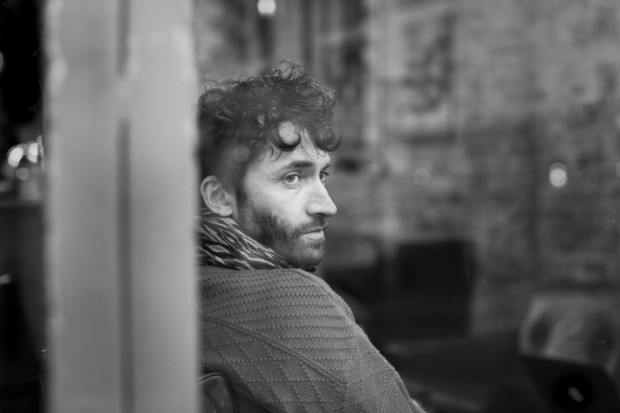
 Fr
Fr Eng
Eng![Marco Shuttle – Sing Like A Bird Reprise [Eerie Records]](http://www.inputselector.fr/wp-content/uploads/2015/11/Marco-Shuttle-–-Sing-Like-A-Bird-Reprise-Eerie-Records-120x120.jpg)
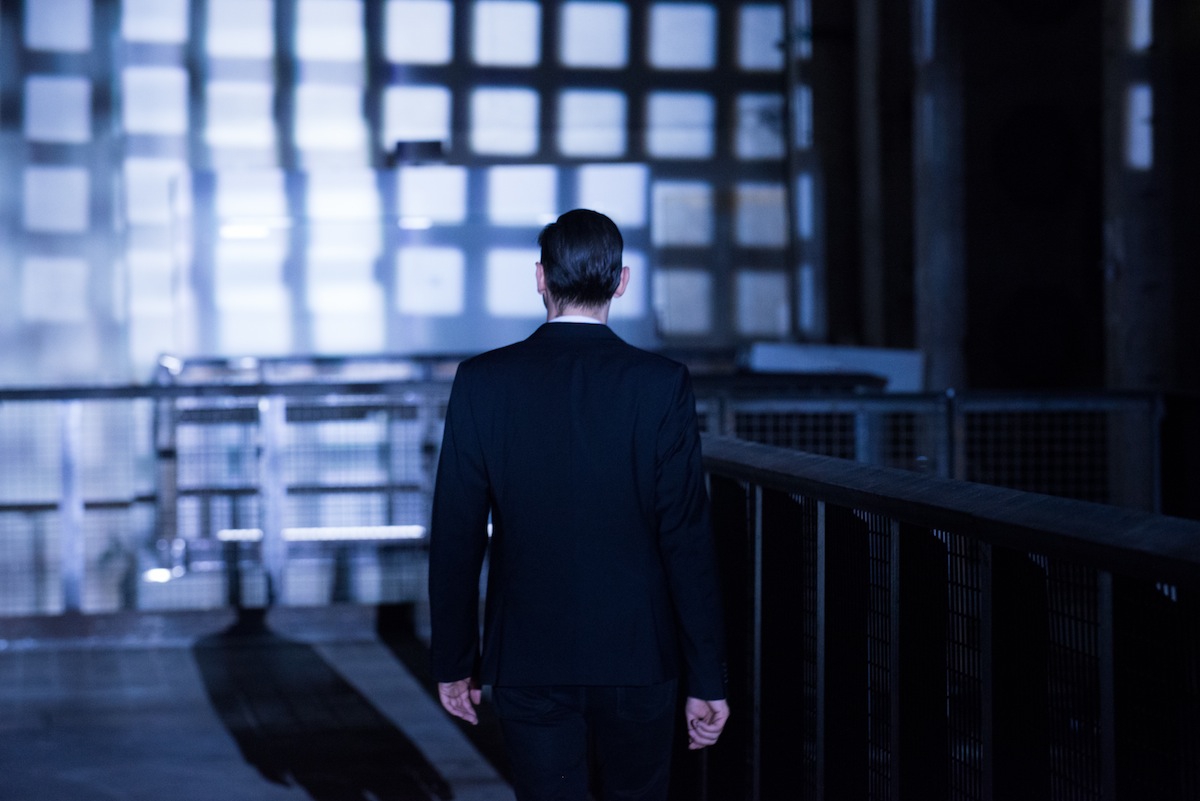
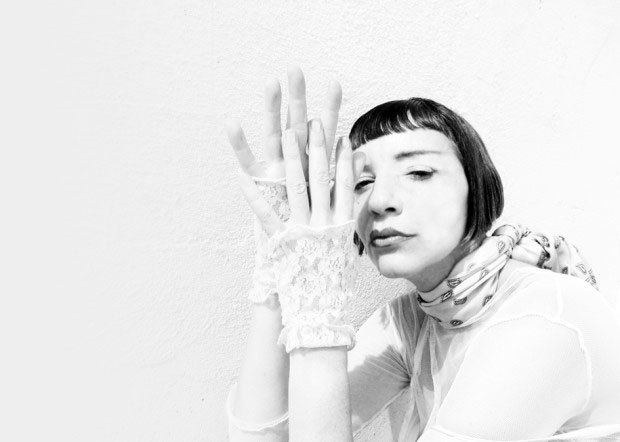
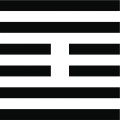
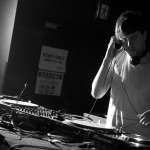
![Skence - Home [Nowadays Records]](http://www.inputselector.fr/wp-content/uploads/2015/12/Skence-Home-Nowadays-Records-150x150.jpg)
![IS 111 – Boris Horel [Eklo Music] boris horel](http://www.inputselector.fr/wp-content/uploads/2012/04/boris-horel-300x200.jpg)
![IS 255 – Edit Select [Prologue] Edit Select](http://www.inputselector.fr/wp-content/uploads/2015/10/Edit-Select-Pic-300x200.jpg)
![IS 117 – Alveol [Dewtone, Mule Electronic, 26 Teadrops International] Alveol](http://www.inputselector.fr/wp-content/uploads/2012/09/Alveol-300x200.jpg)